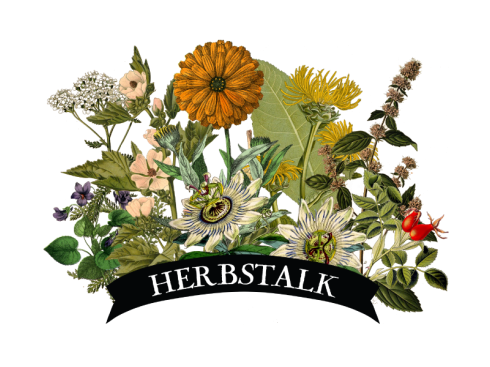|
by Ryn Midura Don’t let the diagrams scare you! Don’t let the long names drive you away. Phytochemistry can be intimidating at a first look, but it does have some useful insights to offer even the most folksy of healers. The best parts of it are those that bear directly on your practical experience working with herbs. Let’s take an quick look at the salicylates, those famously anti-inflammatory and pain-relieving constituents found in willow (Salix alba) and other herbs, as an example. First, aspirin: it’s acetylsalicylic acid, a synthetic derivative. Both natural salicylates and aspirin are pain-relieving, anti-inflammatory, and fever-reducing; however, as it turns out, it is the acetyl group there which provides the blood-thinning actions. So, the natural salicylates found in willow and friends do not thin the blood. (Though admittedly, you may occasionally read otherwise! This seems to be one instance, among many, of back-forming conclusions about the activity of an herb based on assumptions about the activity of its constituents. Be wary!) Second, we have the natural salicylates which we find in our herbs. There are many different forms. Two of the most common: Methyl salicylate is volatile – that is, it evaporates and travels through the air – and lends the distinctive aromatic scent to the wintergreen plant (Gaultheria procumbens), as well as birch (Betula lenta) and meadowsweet (Filipendula ulmaria). It is rapidly and readily absorbed by the skin. Salicin is slowly metabolized into salicylic acid after you consume it. This conversion isn’t completed until the constituents pass through the intestines and liver – which, on the one hand, means that willow usually isn’t as fast-acting a painkiller as aspirin can be. On the other hand, this delayed conversion is a good thing for your GI tract! It is the exposure to free salicylic acid, released during the relatively rapid metabolism of aspirin, which leads to its notorious gut-irritating and ulcer-forming effects. For this reason, willow bark and meadowsweet are much safer: they don’t cause potentially serious damage the way aspirin can. Plants generally contain a blend of salicylates; wintergreen has lots of methyl salicylate, and willow has lots of salicin. That means, if you’re looking to manage topical pain, wintergreen might be a better choice due to the benefits of rapid absorption. As part of a formula to mitigate an arthritic condition over the long term, however, willow might be a better option. Constituents work more effectively in their naturally occurring mixtures than they do when isolated or synthesized – synergy is a key factor in herbal medicine. So, of course we don’t reduce all the actions of a plant down to one constituent! However, it is handy to know a little phytochemistry to help you sort through claims made about herbs, and also make better choices about which plant to apply. If you’d like to learn more, join me for my Practical Phytochemistry class at Herbstalk!  Ryn's first forays into healing came by way of martial arts, where he saw the difference movement and discipline could make for a person’s health. He found plant medicine as a path to deeper engagement with the balances and rhythms in body, mind, and environment. Ryn has been teaching herbalism, and practicing as a clinical herbalist, since 2011. With Katja Swift, he founded the CommonWealth Center for Holistic Herbalism in Boston, MA. There they both consult with individual clients, run a three-year clinical training program, and offer community classes and workshops. Ryn has written for Plant Healer Magazine and the Northeast Herbal Association Journal, and taught at the Traditions in Western Herbalism conferences, the American Herbalists Guild symposium, IM4US, and Herbstalk. He is also a board member for Health Freedom Action Massachusetts, a coalition working to pass "safe harbor" health freedom legislation to protect the rights of unlicensed practitioners, including herbalists. He is trained as a street medic and Wilderness First Responder. |
Archives
November 2023
Categories
All
|


 RSS Feed
RSS Feed